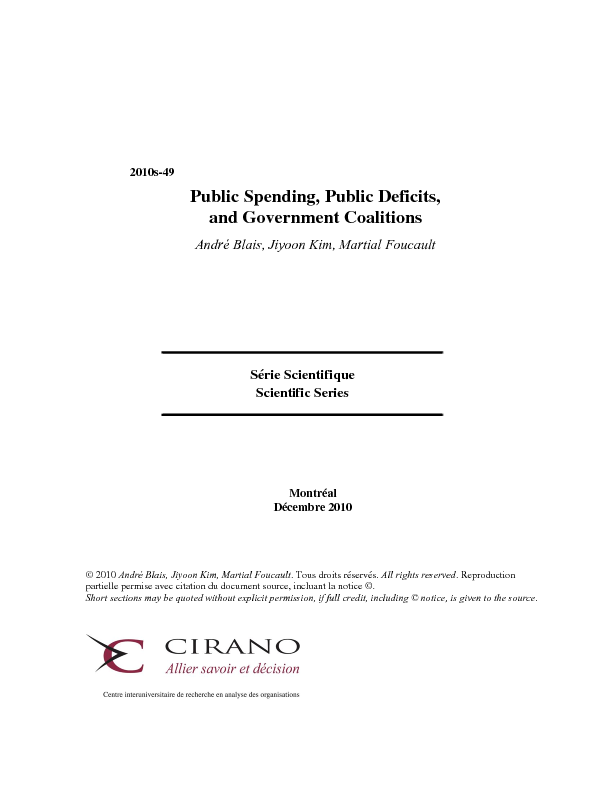Public Spending, Public Deficits, and Government Coalitions
The study examines the relationship between types of government and level of public spending. There are two competing perspectives about the consequences of coalition governments on the size of public expenditures. The most common argument is that government spending increases under coalition governments, compared with one-party governments. Another line of thought contends that coalition governments often are stalled in the status quo due to the veto power of each member. Our analysis of public spending in 33 parliamentary democracies between 1972 and 2000 confirms the latter argument that coalition governments have a status quo bias. Particularly, we find that single-party governments are apt to modify the budget according to the current fiscal condition, which enables them to increase or decrease spending more flexibly. On the contrary, coalition governments find it difficult not only to decrease spending under difficult fiscal conditions but also to increase it even under a more favourable context, because each member of the coalition has a veto power.
[ - ]




